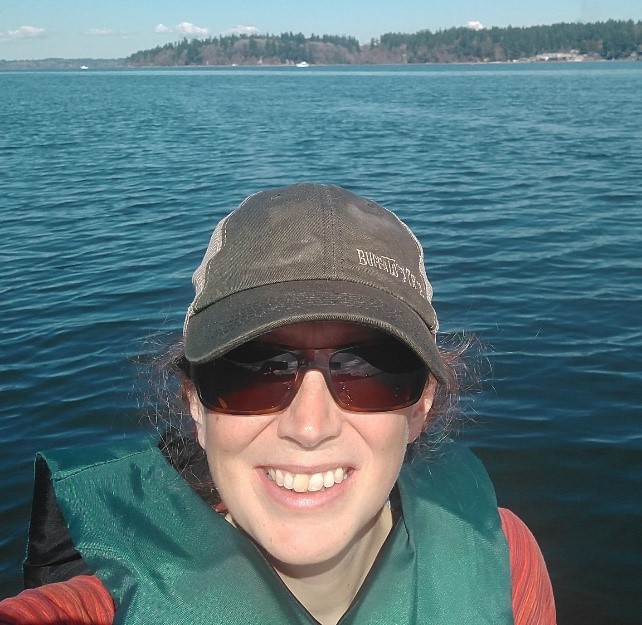- About Us
- Events & Training
- Professional Development
- Sponsorship
- Get Involved
- Resources
Planner Spotlight: Rebecca Brown, AICP
Current Position: Streamflow Restoration Planner for the Department of Ecology Total years in planning: Almost9 years, counting internships and graduate school. Hobbies: Anything that gets me outside exploring and learning about the world around me (hiking, kayaking, backpacking, razor clamming, travel, etc. etc.) Bicycling and bike advocacy. Hometown: Great Barrington, MA Favorite Places: A stretch of the Appalachian Trail on the CT/MA border. Mount Mansfield in Vermont. Goat Rocks Wilderness. Minneapolis. Boston Harbor (a community and marina outside of Olympia). Why did you choose a career in planning? Planning seemed like a way to address big environmental issues at a regional or landscape scale. Why did you decide to be a planner in Washington? I live in Washington because of the easy access to the outdoors all year round. Washington also has a strong emphasis on planning, so there are plenty of opportunities for professional growth here. What projects/initiatives are you currently working on? I am 100% focused on implementing 90.94 RCW, the new Streamflow Restoration law that the legislature passed last January. I chair Watershed Restoration and Enhancement Committees in the Puyallup-White and Chambers-Clover watersheds in Pierce County. As chair, I am guiding these committees through a process to develop plans that will offset the consumptive water use from the next 20 years of new domestic permit-exempt wells, and restore or enhance fish habitat. What was your first planning related job? I interned for The Nature Conservancy in graduate school. I used ArcGIS to review land acquisition opportunities, and created a map of plant locations on one of their preserves. What advice would you give a new planner? Work for a local government. You will learn how planning decisions are implemented and how they impact the community. Also, get to know your engineers. What do you wish you had known when you started your career? How important it is to understand (and remember) planning case law. So much of our field has been guided by the courts, and it took me a while to make the connection between my planning law classes in grad school and the real life implications that we deal with on a day-to-day basis. If you were not a planner what profession would you likely be in? I don’t know for sure, but probably something related to my first career: conservation, trail construction, and service learning. Do you have any favorite online sources related to planning that you’d like to share, and/or planners (historical or present) that have inspired your work? Online Source: www.StrongTowns.org, and the Strong Towns Podcast. It doesn’t have much bearing on my current position or environmental planning in general, but it’s an interesting perspective on city planning, development, and fiscal responsibility. Plus, the founder Chuck Mahron went to the same planning program that I did (go Gophers!). Planner: Former Secretary of the Interior Bruce Babbitt. He wrote Cities in the Wilderness, which was one of my inspirations to go into planning in the first place. It describes a number of national environmental issues (the endangered desert tortoise, the Everglades, and the Chesapeake Bay as examples) and how planning (and other tools) were used to address these issues. Planner: Glenn Harris, my environmental studies professor in undergrad, who introduced me to land-use planning, and advised me on a land-use planning independent study. Return to the January/February issue of The Washington Planner |


